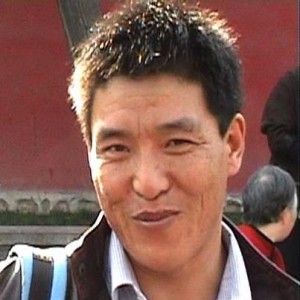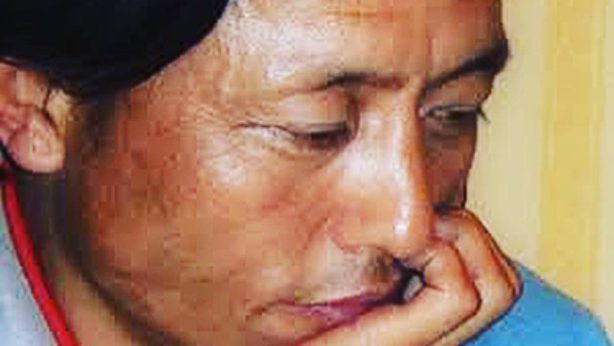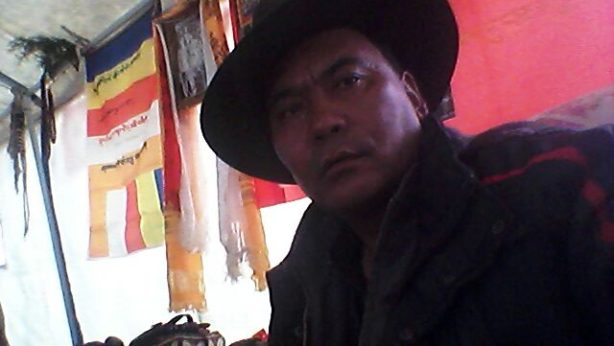TCHRD welcomes Tibetan filmmaker Dhondup Wangchen’s release from prison

The Tibetan Centre for Human Rights and Democracy (TCHRD) is pleased to learn that Dhondup Wangchen, the courageous filmmaker of Jigdral (“Leaving Fear Behind”) has been released after serving 6 years in prison.
Dhondup Wangchen was released 5 June 2014 from a prison in Xining, the capital of Qinghai Province.
TCHRD hopes for Dhondup Wangchen’s safe return and swift reunion with his wife, Lhamo Tso, and his four children.
Dhondup Wangchen was detained by the Chinese authorities in March 2008 for shooting the 25-minute documentary film called Jigdral. The documentary is based on 35 hours of footage and 108 interviews that Dhondup Wangchen and his assistant, Golog Jigme, conducted over five months in the run-up to the 2008 Beijing Olympics. The film features candid conversations with ordinary Tibetans – monks, nuns, herders, students – in Tibetan areas in Qinghai Province who expressed their views on a wide range of issues such as the Dalai Lama, the 2008 Beijing Olympics, and human rights conditions in Tibet.
Most of the Tibetans interviewed in the film openly and freely expressed their grievances against Chinese policies and their love for the exiled Dalai Lama.
In March 2008, shortly after the film was distributed outside Tibet, the Chinese authorities detained Dhondup Wangchen and his assistant Golog Jigme. (Golog Jigme recently fled Tibet after being detained and tortured multiple times by Chinese police since 2008.) Andrew Jacobs of the New York Times described the documentary film as “an unadorned indictment of the Chinese government.”
For more than a year during his detention, Dhondup Wangchen was held at Gongshan Hotel, an unofficial place of detention or black jail before he was sentenced in a secret trial to six years in prison on ‘subversion’ charges. In the black jail, the police tied him to a chair, beat and punched him in the head and frequently deprived him of food and sleep during interrogations, according to Amnesty International. Much like Re-education Through Labour and soft detention, the Chinese authorities use black jails to circumvent the law and avoid legal due process.
“We stand by our conviction that Dhondup Wangchen was not a criminal. He did not deserve to be punished. Using the medium of documentary filmmaking, he wanted to investigate the reality of Tibetan situation under Chinese rule. More than Dhondup Wangchen, it was his quest for truth that the authorities feared most,” said Tsering Tsomo, executive director of TCHRD. “Jigdral is an enduring testimony to Dhondup Wangchen’s brave spirit and the truth that he helped reveal at the cost of his own freedom. He is and will continue to be an inspiration.”
TCHRD would like to offer our sincere gratitude to everyone who has worked tirelessly for years advocating and supporting on behalf of Dhondup Wangchen and his family.
As we celebrate Dhondup Wangchen’s release, our thoughts go out to those who still remain behind bars for merely exercising their basic human rights and liberties. We hope they too will be released soon.


